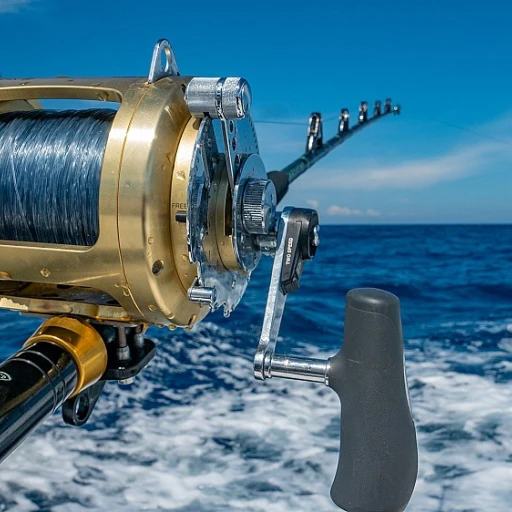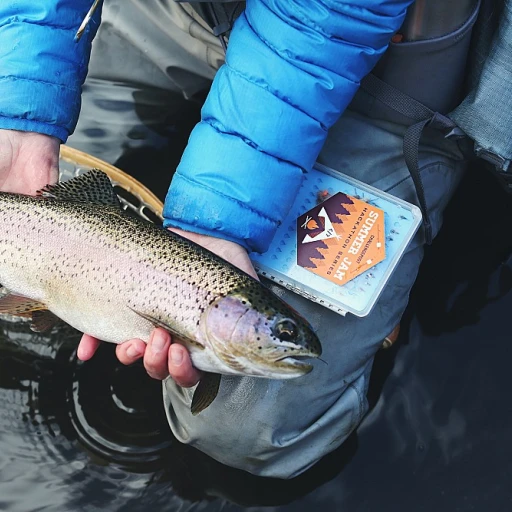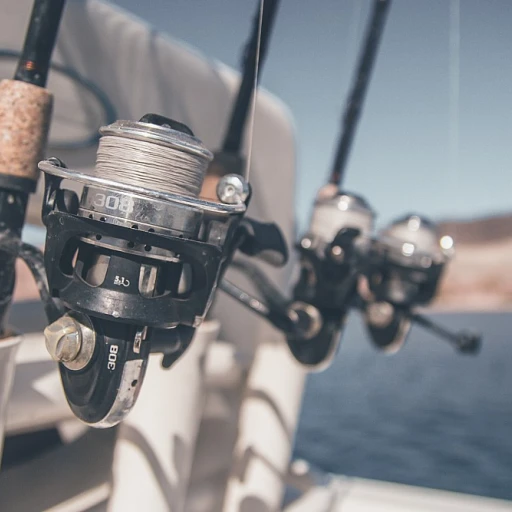
The record-setting great white shark
The world-record great white shark
Imagine this: the ocean's most formidable predator, the great white shark. In April 1959, Alfred Dean made headlines when he caught a colossal great white shark off the coast of Ceduna, Australia. Weighing an astonishing 2,664 pounds (1,208 kg), this behemoth remains the largest fish ever caught using a rod and reel. The feat was recognized by the International Game Fish Association (IGFA), which still holds records of such incredible catches.
“Catching that great white with just a rod and reel was a challenge unlike any other,” Dean once said. “You could feel the sheer power of the shark the moment it was hooked.”
Alfred Dean's record-setting catch is often discussed in the fishing community, not just for its size but also for the battle it entailed. The enormous fish displayed incredible strength and determination, making Dean's victory even more remarkable. Such encounters highlight the bravery and skill required to tackle the ocean's giants.
For those curious about other jaw-dropping catches, don't miss reading about some of the biggest groupers ever caught. You won't believe the size of these underwater giants!
Ken Fraser's legendary bluefin tuna
The great white shark that broke records
Speaking of memorable catches, we just can't overlook the great white shark caught by Alfred Dean off the coast of Ceduna, Australia in April 1959. This infamous catch weighed in at an astonishing 2,664 pounds (1,208 kg), making it one of the largest fish ever caught. Dean's record still stands tall in the International Game Fish Association (IGFA) annals as a formidable achievement in the world of big-game fishing.
Dean used a rod and reel, and the capture of this gigantic predator was laborious, requiring immense skill and patience. To date, this particular catch remains a point of reference for anglers striving for the ultimate fishing achievement. The sheer size of Dean's great white shark has left an indelible mark on the community and continues to inspire many enthusiasts worldwide.
Ken Fraser's monumental bluefin tuna catch
Another unforgettable catch worth mentioning involves Ken Fraser's legendary capture of a giant Atlantic bluefin tuna off the coast of Nova Scotia, Canada in 1979. Weighing in at 1,496 pounds (678.58 kg), this massive fish became the largest bluefin tuna ever caught, setting a benchmark in the IGFA records.
Fraser's bluefin tuna was not only remarkable for its size but also for the intense battle that ensued during the capture. The fight lasted for hours, testing Fraser's endurance and fishing prowess. The story of this spectacular catch is still recounted among fishing circles and serves as inspiration for those chasing record-setting fish.
To dive deeper into the world of astonishing fishing records, check out biggest fish ever caught in the world.
The colossal wels catfish of Europe
The colossal wels catfish of europe
Europe has its own giant in the freshwater world - the wels catfish (Silurus glanis). This species is renowned for its remarkable size, making it a legendary catch among anglers. The wels catfish is native to Eastern Europe and has been known to inhabit large rivers and lakes across the continent.
One of the most famous catches occurred in Italy when British angler Tom Herron reeled in a massive wels catfish weighing an astonishing 280 pounds (127 kg) and measuring 8 feet 4 inches (2.54 meters) long. This record-setting catch made headlines in fishing magazines worldwide and firmly established the wels catfish as one of the largest freshwater fish ever caught.
Another notable catch came from the River Po in Italy, where Italian angler Dino Ferrari caught a 280-pound (127 kg) wels catfish in February 2015. Using a rod and reel, Ferrari's catch was not only a testament to his skill but also highlighted the monstrous potential of the wels catfish.
The International Game Fish Association (IGFA) recognizes catches based on weight and length, and the wels catfish often features in these records. According to the IGFA, the largest wels catfish ever caught using a rod and reel weighed 297 pounds (135 kg) and measured over 7 feet 11 inches (2.41 meters) in length.
Wels catfish are opportunistic predators, feeding on a variety of prey, including fish, small mammals, and even birds. Their aggressive nature and considerable size make them a challenging catch for even the most experienced anglers. The thrill of hooking a wels catfish lies in their powerful pulls and dogged resistance, which can make for an exhilarating battle.
Considering its immense size and the records it has set, it's no wonder the wels catfish remains a coveted prize among freshwater anglers in Europe. The fish's ability to reach lengths and weights comparable to some of the largest marine species only adds to its mystique and allure.
Mekong giant catfish: a freshwater behemoth
The freshwater giant: mekong giant catfish
Imagine a fish so massive it defies belief. That’s exactly what anglers encounter when they reel in a Mekong giant catfish. This colossal species reigns supreme in the freshwaters of Southeast Asia, known for their immense size and incredible strength.The Mekong giant catfish, Pangasianodon gigas, holds the title for the largest freshwater fish ever caught. Found mainly in the Mekong River, which flows through Thailand, Laos, Cambodia, and Vietnam, these giants can grow up to 10.5 feet long and weigh over 600 pounds. In fact, the largest verified Mekong giant catfish weighed an astonishing 646 pounds. The International Game Fish Association (IGFA) recognizes this as a significant achievement in the fishing community.Legendary fishing tales
Anglers recount their experiences with awe, often comparing the challenge of catching a Mekong giant catfish to a grueling battle. The fish’s sheer power makes the struggle both thrilling and exhausting. Ken Fraser, renowned for landing a 1,496-pound bluefin tuna off Nova Scotia, once remarked that wrestling with a Mekong giant catfish is equally daunting.Conservation efforts and controversies
While the Mekong giant catfish is a marvel, it faces declining populations due to habitat destruction and overfishing. Efforts led by organizations like the World Wildlife Fund aim to protect these magnificent creatures through habitat preservation and sustainable fishing practices. Nevertheless, there are debates within the fishing community about the ethics of targeting such vulnerable species for record-setting catches.Case studies: record-setting catches
The most famous catch was by a group of Thai fishermen in 2005. This legendary event saw them reel in a Mekong giant catfish weighing 646 pounds. Verified by the Thai Fisheries Department, it’s one of the most celebrated records to date. This catch reignites the longstanding discussion about the balance between achieving personal records and conserving endangered species.For more details on other colossal catches, check out our feature on the biggest fish ever caught in the world.It's no wonder that the Mekong giant catfish continues to captivate the imagination of anglers worldwide, making it one of the most thrilling freshwater giants one could ever dream to catch.The massive greenland shark
Greenland shark: a massive Arctic predator
Greenland sharks, often dubbed as the ancient mariners of the seas due to their incredible lifespan, have been known to live for centuries, some even reaching up to 400 years old. These behemoth sharks have been recorded at lengths exceeding 24 feet and weights of up to 2,200 pounds. Generally found in the cold, deep waters of the North Atlantic and Arctic Oceans, they are a rare sight for anglers, but an unforgettable catch when it happens. One of the most notable Greenland sharks ever caught was by Norwegian fisherman Leif Nøttestad, who reeled in a giant weighing a staggering 1,708 pounds in 1938. The International Game Fish Association (IGFA) recognizes this as one of the heaviest Greenland sharks ever landed using rod and reel.Weight and size facts
Greenland sharks typically weigh between 880 to 1,100 pounds and can grow up to 21 feet in length, making them one of the largest species of sharks. Their slow growth rate coupled with their longevity equates to their massive size.Scientific insights
A study published in the journal Science in 2016 by Julius Nielsen and his team confirmed that these sharks could be around for centuries, with radiocarbon dating of the eye lenses used to estimate their age. This longevity and slow metabolism are intriguing aspects for marine biologists and add to the mystique of these creatures.Fishing tactics and challenges
Catching a Greenland shark is no small feat. The cold, deep waters they inhabit make them elusive. Plus, due to their weight and size, specialized heavy-duty tackle and immense patience are required. Anglers often use deep-sea fishing rods, strong braided lines, and giant baits like fish or even small mammals to lure these giants.Famous catches
Leif Nøttestad's remarkable catch off the coast of Norway remains one of the most famous catches. His 1,708-pound Greenland shark still holds the IGFA tackle record for the species. This giant fish set the bar high in the arena of game fishing. For those fascinated by record-breaking catches, the biggest fish ever caught offers a treasure trove of legendary stories. Further proof of the Greenland shark's prominence in game fishing records was when another record-setting shark weighing 1,036 pounds was caught near Canada, highlighting the widespread distribution of these colossal fish. Fascination with the Greenland shark lies in its mysterious nature, bordered by the thrilling tales of those who've managed to catch these giants. If you want to delve deeper into the thrilling world of record-holding catches, stay tuned for more epic fishing stories.Pacific and Atlantic blue marlins
Pacific and atlantic blue marlins: marlin madness
When it comes to massive catches, few fishers can forget the titanic blue marlins of the Pacific and Atlantic. These colossal creatures are more than just a fisherman's tall tale—they're record-breaking giants of the ocean.
Back in 1982, angler Jay de Beaubien hooked a legendary Pacific blue marlin off the coast of Hawaii. Weighing in at a staggering 1,376 pounds, this catch still holds the record as the largest Pacific blue marlin ever caught with rod and reel. It's no wonder this marlin has etched its name into the history books!
On the Atlantic side, experienced angler Paulo Amorim made waves in 1992 by reeling in an Atlantic blue marlin weighing 1,402 pounds off the coast of Brazil. Imagine the sheer strength and determination it took to land this oceanic behemoth.
Part of what makes marlin fishing so thrilling is the challenge of not only finding these fish but also having the right technique and tackle to bring them in. It's not an adventure for the faint of heart. The marlin's speed, acrobatics, and sheer power test even the most seasoned anglers. Many fishing enthusiasts head to renowned spots like Kona in Hawaii, the Azores in Portugal, or the Cabo Blanco in Peru hoping for a chance to join the elite club of record holders.
With their iconic, elongated bodies and spear-like bills, blue marlins are prized not only for their size but also their beauty and sporting quality. Marlin fishing tournaments, such as the Bisbee's Black & Blue Marlin Tournament in Cabo San Lucas, draw anglers from around the globe, eager to experience the thrill of the chase and the prestige of landing a record marlin.
The great white shark caught off the coast of Australia
A once-in-a-lifetime catch: the great white shark off Australian waters
Australia's deep blue ocean hides giants, and one angler's unexpected encounter truly took the fishing community by storm. In 1959, Alfred Dean, an Australian fisherman, reeled in a formidable great white shark off the coast of Ceduna, South Australia. Measuring an astounding 16 feet 10 inches (5.11 meters) long and tipping the scales at 2,664 pounds (1,208 kg), this shark set a record that still stands in the International Game Fish Association (IGFA) books. Dean's remarkable capture was achieved with rod and reel, a feat that remains unparalleled to this day. The gear used included a 130-pound line, designed for battling such oceanic titans. The catch was so massive that it required substantial teamwork and ingenuity to manage and document. The meticulous records kept by the IGFA confirm the authenticity of this behemoth, ensuring it remains a gold standard in the fishing world. The great white shark, a species well-known for its formidable strength and fearsome reputation, continues to be a target for ambitious anglers. However, catches anywhere near the size of Dean's record-setting shark are exceedingly rare. The stories surrounding this legendary catch bring a mix of awe and inspiration to aspiring fishermen around the globe. In the years since, no other great white shark caught has come close to challenging Dean's record. Yet, the hope of encountering another giant keeps the spirit of big game fishing alive and kicking. Australia's waters are renowned for their diverse marine life and excellent fishing opportunities, drawing anglers from far and wide. Many factors, including favorable ocean currents and the abundance of prey species, contribute to the presence of these large predators. The blend of skill, luck, and the sheer power of the great white shark makes for an exhilarating fishing experience—a tale worth telling for generations. While Dean’s great white remains unchallenged, fishermen and women continue to dream of landing their own monster catch. The lore of the biggest fish ever caught interweaves the thrill of the hunt with reverence for the ocean's mightiest creatures. If you’re inspired to learn more about legendary fish tales, explore these record-breaking giants of the sea.Controversies and debates in record catches
Controversy around weighing and authenticity
Both specialists and amateurs in the fishing world have occasionally debated the authenticity of certain record catches. For instance, the weight of the historical catches like the great white shark and Ken Fraser's bluefin tuna have been publicly questioned. Some skeptics argue that discrepancies in measurement techniques over the years make some records less reliable.One notable controversy is around the classification and verification of catches by the International Game Fish Association (IGFA). The IGFA sets stringent standards, but debates still arise about the accuracy of gear used or the exact location where the fish was hooked. The IGFA, however, uses modern technology and standardized processes to counter these claims, aiming to maintain credibility.
Species-specific controversies
Different species also bring their own set of challenges. The world's largest freshwater fish, such as the Mekong giant catfish, face additional scrutiny because documenting a large catch in remote areas like Thailand can be difficult. There have been instances where local fishermen claimed catches without proper documentation, creating a gray area.Similarly, fishing for giants such as the Greenland shark or gigantic marlins often occur in extreme locations like Greenland or off the coast of Australia, adding to the logistical complexities of verification.
Conservation vs. sport fishing
A more recent debate revolves around the ethics of catching these enormous fish, particularly concerning the well-being of marine species. Certain conservationist groups argue that sport fishing for record-breaking fish could harm the populations of these largest species. As a result, some anglers advocate for catch and release methods, even for large game fish, emphasizing the importance of conservation.Despite these challenges, enthusiasts continually push the boundaries in the quest to catch the biggest fish ever recorded. From the colossal wels catfish in Europe to the immense Mekong giant catfish in Thailand, each record-setting fish caught is scrutinized, celebrated, and, at times, disputed.
For more on the legendary bluefin tuna, you can read this deep-dive into record-breaking catches. The conversation about the largest fish ever caught is as dynamic and expansive as the oceans themselves.

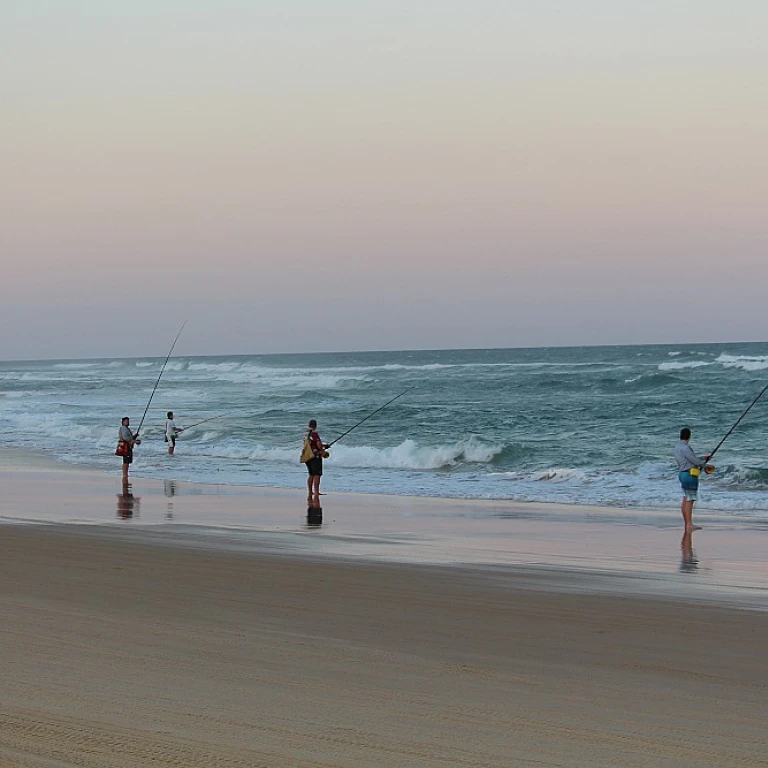

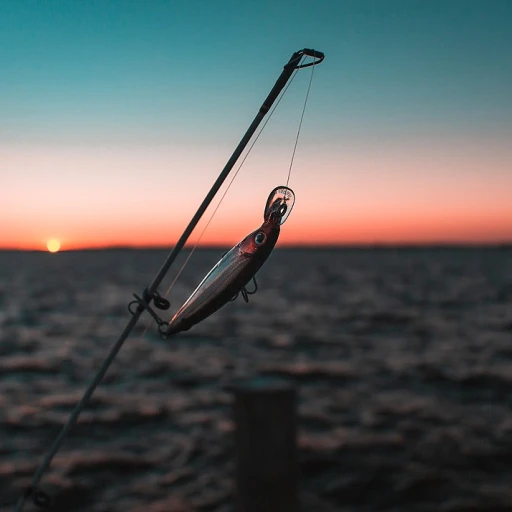
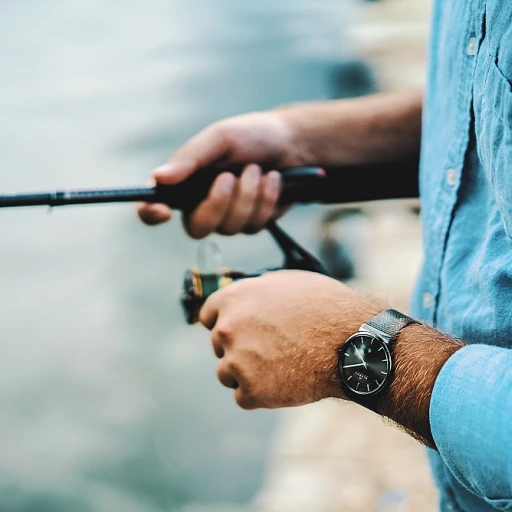
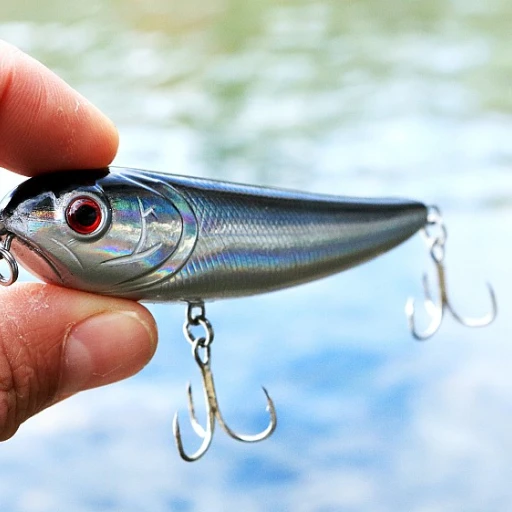
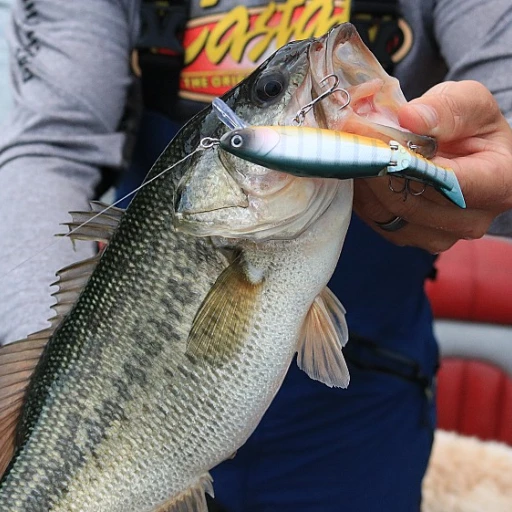
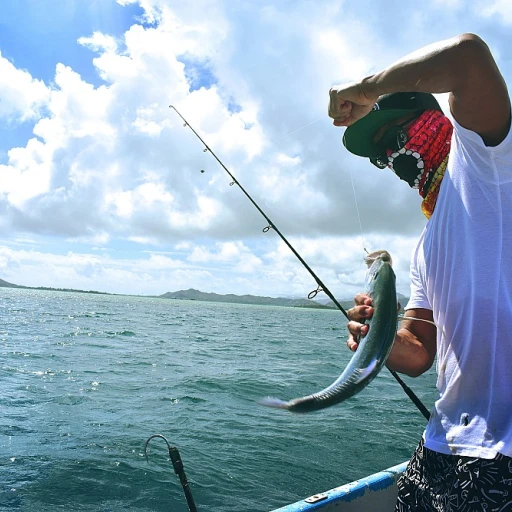
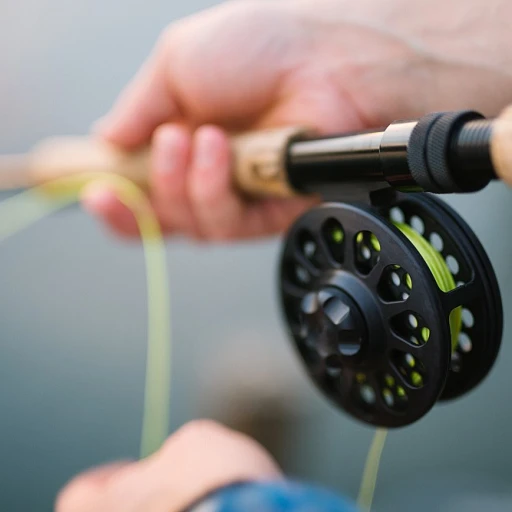
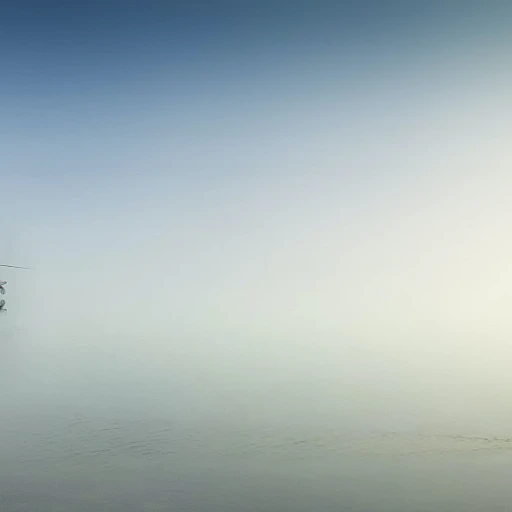
-large-teaser.webp)
